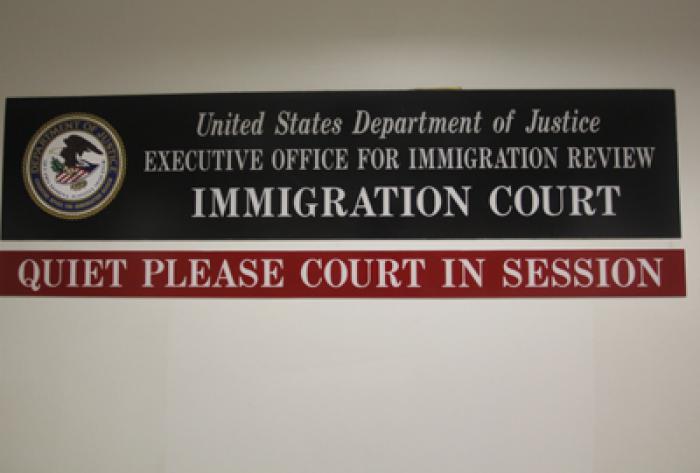The debate over abolishing birthright citizenship is one more distraction from fixing our broken immigration system. Instead of focusing on comprehensive reform, Republican leaders are proposing constitutional amendments to deny citizenship to “anchor babies” – a derogatory term used to describe children born in the U.S. to undocumented immigrants. Under current immigration law, some undocumented immigrants may obtain relief from removal if they can show that their departure would cause exceptional and extremely unusual hardships to their U.S. citizen child. An American child, after turning age 21, may also petition for her foreign national parents to become lawful permanent residents of the United States. While birthright citizenship is now a part of the immigration debate, repealing it is not an effective solution, but a distraction from what really needs to be done.
Section 1 of the Fourteenth Amendment states, “All persons born or naturalized in the United States and subject to the jurisdiction thereof, are citizens of the United States and of the State wherein they reside.” Some Congressional leaders want to change this portion of the Fourteenth Amendment to discourage foreign national mothers from entering the United States just to give birth to a child who will automatically become a U.S. citizen. In a recent appearance on Fox News, Senator Lindsey Graham of South Carolina said, “They come here to drop a child. It’s called drop and leave.” His comment helped to spurn the renewed debate about birthright citizenship. Subsequently, Senator John McCain of Arizona suggested that Congress hold hearings to discuss the issue.
Both of these seasoned Republican senators had previously worked with Democrats in a bipartisan attempt at passing comprehensive immigration reform. Now that election season is approaching, however, the conservative senators have changed their tune. Right wing polls have made it clear that the conservative voter base wants hard lines against undocumented immigrants, rather than cooperation with President Obama that could result in a mending of our broken immigration system.
While everyone agrees our nation’s immigration system is broken, the birthright citizenship debate has caused further divisiveness. Instead of continuing to work across party lines in what was and could have continued to be a boldly refreshing effort at needed immigration reform, Graham and McCain have now made the unrealistic suggestion that we consider denying citizenship to persons born in the U.S whose parents did not cross our border legally.
Making such a drastic change is nearly impossible, as doing so would require constitutional changes, which rarely occurs because it needs a vote from two-thirds of Senate and three-quarters of the states. Neither Senator McCain nor Senator Graham expects this to occur. Graham and other members of his party are concerned that our policy of giving citizenship to everyone born in this country encourages people to break the law by coming to this country without permission.
They also note that the United States is one of few countries that gives citizenship to everyone born within its borders. Canada is another. Great Britain changed its policy in 1981 to allow citizenship only to babies born to citizens and permanent residents. France allows those born in France to become citizens when they reach adulthood, rather than at birth. It is not often though, that a republican senator follows the lead of the French on policy matters.
Opponents of repealing birthright citizenship point out that by denying citizenship to people who are born in this country, we would create an underclass of non-citizens who may also have difficulty obtaining citizenship in the land from which their parents immigrated.
Also, the Fourteenth Amendment, and the guarantee of citizenship at birth that goes along with it, is a policy that has allowed this nation of immigrants to be united. Cristina Rodriguez, a law professor at NYU wrote: “Each generation born in the U.S. stands on its own, with equal citizenship status, regardless of parentage. Given our history as a society of immigrants, this rule has been crucial to our development into a cohesive political community and to our ability to integrate each new immigrant cohort.”
The Fourteenth Amendment, which guarantees equal protection to all persons in the jurisdiction of the United States, is a tradition of which we should be proud. It was added to the constitution in part to ensure that African Americans, who had been slaves, would have equal protection of the law. In addition to a guarantee of legal equality, the Fourteenth Amendment helps ensure that all persons who are born here are entitled to have a voice in this country.
Rather than discussing the revocation of this tradition that has helped to make our nation great, we should focus on taking positive steps to make our immigration system function. With some effort and cooperation, Congress can pass a bill that will benefit both the conservative voters and the immigrants who will continue to come to our country and make positive contributions. Congress needs to do away with these distractions and pass comprehensive immigration reform because an immigration system that works is a benefit to us all.
Nothing in this article should be taken as legal advice for an individual case or situation. The information is intended to be general and should not be relied upon for any specific situation. For legal advice, consult an attorney experienced in immigration law.
About Igbanugo Partners International Law Firm
Igbanugo Partners Int'l Law Firm is based in Minneapolis, Minnesota. It focuses on (1) U.S. immigration law and (2) international trade law in Sub-Saharan Africa.
- Web |
- More Posts(71)







